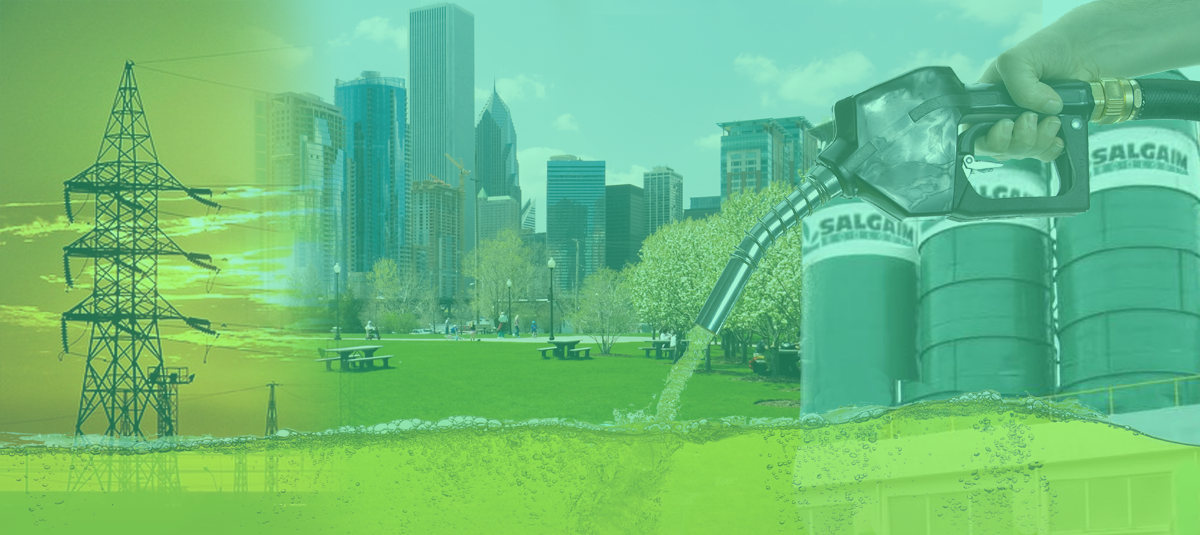SOA PROCESSING
Transformation of SLAUGHTERHOUSE WASTE into raw materials
TRANSFORMATION of S.O.A. products
ANIMAL-DERIVED BY-PRODUCTS cat. 1 - 2 - 3
Salgaim Ecologic S.p.A. is a rendering industry with three state-of-the-art plants located in Northeast Italy, boasting decades of experience in the collection, transportation, and treatment of Category 1, 2, and 3 Animal-Derived By-Products (S.O.A.). These by-products include waste from slaughtering, expired or unsuitable food for human consumption, providing a highly professional, timely service that complies with current regulations. The management is carried out with a sustainable and technologically advanced approach, ensuring minimal environmental impact and maximum respect for health and environmental regulations.
Thanks to its established operational capacity and continuous technological innovation, Salgaim Ecologic S.p.A. stands out as a reliable partner for businesses and institutions requiring responsible, safe, and efficient management of animal-derived waste. The company does not limit itself to the proper management of by-products but actively invests in transforming these materials into useful resources, thus contributing to the circular economy.
The by-products treated by Salgaim Ecologic S.p.A. are transformed into valuable raw materials for various sectors. Among them, soap factories and oleochemical industries benefit from the production of transformed fats and oils, as well as the biofuels and bioliquids industries, which use the residues to produce sustainable energy sources. Additionally, the company meets the needs of the feed industry for livestock and pets, ensuring high-quality ingredients that comply with safety standards. Finally, the by-products find application in the organic fertiliser sector, helping promote sustainable agricultural practices and environmental stewardship.
Category 1 S.O.A.
- All parts of the body, including skins, of animals suspected of being affected by transmissible spongiform encephalopathies (TSE), such as BSE (mad cow disease).
- Animals slaughtered as part of TSE eradication measures.
- Pets, zoo animals, circus animals, and experimental animals.
- Wild animals suspected of being affected by transmissible diseases.
- Specific risk materials, i.e., tissues susceptible to carrying an infectious agent.
- Products from animals that have been given banned substances or contain environmentally hazardous products.
- All materials collected during the treatment of wastewater from Category 1 rendering plants and other premises where specific risk materials are removed.
- Kitchen and catering waste from vehicles operating international routes.
- Mixtures of Category 1 materials with Category 2 and/or 3 materials.
Category 2 S.O.A.
- Manure and contents of the digestive tract: Materials derived from animals that can be used in agriculture after appropriate treatments.
- Animal-derived materials collected during the wastewater treatment of slaughterhouses.
- Products containing residues of veterinary medicines and contaminants.
- Animal products not compliant with community veterinary requirements (including those imported from third countries).
- Animals not slaughtered for human consumption, such as animals dead from avian species or mammals other than ruminants.
- Mixtures of Category 2 and 3 materials.
Category 3 S.O.A.
- Parts of slaughtered animals suitable for human consumption but not intended for this purpose due to commercial reasons, processing issues, or packaging defects.
- Parts of slaughtered animals deemed unsuitable for human consumption that do not show signs of transmissible diseases.
- Blood, skins, hooves, horns, pig bristles, and feathers obtained from animals slaughtered in a slaughterhouse and considered fit for human consumption after ante-mortem inspection.
- Blood obtained from animals, excluding ruminants, slaughtered in a slaughterhouse after ante-mortem inspection.
- Raw milk produced by animals with no clinical signs of transmissible diseases.
- Fish or other marine animals caught in deep-sea waters intended for fishmeal production, as well as fresh by-products from fish used in products intended for human consumption.
- Eggshells from animals with no clinical signs of transmissible diseases.
- Kitchen and catering waste excluding Category 1 materials.
LABORATORY CONTROLS
The company is equipped with two in-house laboratories, specifically designed to ensure continuous checks on raw materials and finished products, subjecting various samples to chemical and microbiological tests in compliance with current regulations and quality standards.
Equipped with the most advanced technology, the laboratories provide results in a very short time thanks to the use of state-of-the-art NIRS and PCR.
Additionally, the use of traditional chemical instruments ensures the monitoring and calibration of values with chemical analyses according to NGD or ISO methodologies.
Within the Quality Management System (QMS), all production and quality control data (chemical and bacteriological) are properly stored and archived.
Periodically, production batches are sent to accredited external laboratories for tests on PCB, dioxins, detergent residues in finished products, polyethylene in fats, etc., according to the requirements of quality/sustainability certifications and customer requests.
SALGAIM ECOLOGIC
















